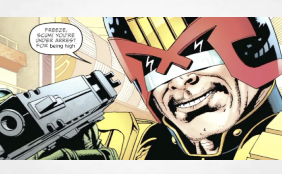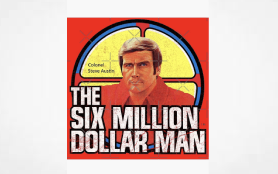I talk to Jeffrey about the lawsuit he has initiated in Minnesota against the state government alerting them of their own constitition and this particular amendment post a famous court case(s) of 1904
Peter Jensen just wanted to sell his extra melons.
The Minnesota man grew melons on his farm and usually sold them at a Minneapolis farmer’s market, the most common way for city residents to buy fruits and vegetables. One day back in 1903, having not sold the entire crop, Jensen began promoting the excess from his wagon while driving slowly back home. He got rid of the extras and residents along the way got a discount.
- State v. Jensen, 93 Minn. 88 (Minn. 1904)
- Supreme Court of Minnesota
START, C. J.
The defendant on December 4, 1903, was convicted in the municipal court of the city of Minneapolis of the offense of exercising the vocation of a peddler without having obtained a license so to do, contrary to the ordinance of the city. Thereupon the court adjudged that the defendant pay a fine of $10, and be imprisoned in the workhouse of the city until the fine was paid, not exceeding ten days. He appealed from the judgment, and also from an order denying his motion for a new trial.
The ordinance, so far as here material, is in these words:
Section 1. That no person * * * shall practice or exercise the vocation of * * * peddler * * * or exercise any trade, business or occupation for which the price of a license *89is provided for or specified in this ordinance, without first having procured and obtained a license therefor in the manner hereinafter provided.
Sec. 2. That the following yearly rates for licenses in said city are hereby fixed and established to be paid by every person or firm engaged in, or who shall engage in the respective callings, vocations or kinds of business named in’ this section within the limits of said city, viz.: Wagon peddlers, — one hundred and twenty-five dollars.
This ordinance was enacted pursuant to the authority conferred by the legislature upon the common council of the city of Minneapolis to “license and regulate all peddlers doing business within the city.” Sp. Laws 1881, p. 436, c. 76, subc. 4, § 5, subd. 19.
1. The defendant urges that the license fee of $125 is unreasonable in amount, and a tax for revenue, and that therefore the ordinance is void. The authority given to the city council by the charter of the city to license and regulate peddlers was granted for police, not revenue, purposes, but the fact that the city incidentally derives a revenue from the exercise of the power does not affect the validity of the ordinance. In the exercise of the power granted, a wide discretion is allowed to the city council, and, unless the license fee is manifestly unreasonable, the ordinance is not void. The business of peddling is a legitimate one, but, unless regulated and wisely policed, it is liable to become a nuisance, especially in the large cities of the state. Therefore the amount of the license fee is not limited to an amount which will cover the expense of issuing it, but it may include the reasonable cost of policing the business, and such further reasonable sum as the council may deem necessary in orden to. secure the orderly pursuit of the business, by excluding therefrom irresponsible and disorderly persons. City of Mankato v. Fowler, 32 Minn. 364, 20 N. W. 361; In re White, 43 Minn. 250, 45 N. W. 232; City of Duluth v. Krupp, 46 Minn. 435, 49 N. W. 235; City of Duluth v. Marsh, 71 Minn. 248, 73 N. W. 962. In the second case cited it was held that a license fee of $3 a day for peddlers was not unreasonable, and in the third one cited it was held that a license fee of $100 a year for peddling in the city of Duluth was not unreasonable. We hold that the license fee of $125 a year’for peddling in the *90city of Minneapolis is not so manifestly unreasonable as to justify the court in holding that the ordinance is void.
2. The defendant also contends that the finding of the trial court that the defendant was guilty of violating the ordinance is not sustained by the evidence, for the reason that the ordinance wafe intended as a regulation of the business of peddling as an occupation different and distinct from other occupations, and that a farmer who sells from house to house the products of his own farm is not a peddler, within the meaning of the ordinance. The evidence is undisputed, and shows that the defendant had a team hitched to a wagon, with a rack on it loaded with baskets, some of which were filled’ with melons, and others were empty. The wagon was driven along the street for the distance of a block by a boy; the defendant moving along with it from house to house, calling out, “Melons for sale,” and inviting people to buy them. The melons were in defendant’s wagon, and were offered and exposed for’ sale by him. They were grown by him on his own farm, in Hennepin county. He made five sales of melons to five different persons in the distance of a block. The melons were sold in one-half bushel lots, and occasionally five cents’ worth at a single sale. He delivered and received pay for the melons as they were sold. The deliveries were made from the wagon, the defendant carrying the baskets to the various houses along the avenue whenever and wherever a sale was made. When questioned by the officer at the time of his arrest, the defendant said he had a right to peddle; that he could not sell all Of his stuff on the market that day, and determined, therefore, to go out and peddle it. He had no license.
This evidence is sufficient to sustain the finding of the trial court that the defendant was exercising the vocation of a peddler, and the defendant’s conviction was legal, unless the word “peddler,” as used in the ordinance, is to be construed as excluding a farmer who sells from house’to house the product’of his own farm, as the defendant claims. There are decisions of other courts which hold that a farmer or a gardener, who, as an incident to his business, sells the product of his farm or garden at retail from door to door, should not be regarded as a peddler. At the first blush, this seems to be sound and just, because the so selling of such products is not in and of itself a harmful business, but, on the contrary, mutually beneficial to both seller and *91purchaser, and a matter of convenience in the smaller towns of the state. But the fact that the articles sold from house to house are the products of the seller’s own farm or garden affords no just reason why he should not be placed on the same basis as parties who purchase their stock from others. In either case the need of police regulation is the same. There can be no distinction in principle between the party who peddles his own product, and the one who buys his stock from the producer, and peddles it, and we cannot recognize any such distinction. We so held in the case of State v. Wagener, 69 Minn. 209, 72 N. W. 67.
It follows that if the farmer or gardener who peddles the product of his farm or garden is not a peddler, within the meaning of the ordinance, then no other person who peddles fruits, vegetables, and farm and garden products in the city of Minneapolis can be held to be a peddler. We hold that the ordinance applies to all persons who exercise the vocation of peddler within the city, whether they peddle their own product or that of another. The acts of the defendant, as shown by the evidence, bring him within the meaning of the word “peddler,” as used in the ordinance. City of St. Paul v. Briggs, 85 Minn. 290, 88 N. W. 984.
Judgment and order affirmed.
https://www.courtlistener.com/opinion/8017714/state-v-jensen/
Win-win, right? It was, until a city cop approached Jensen and asked for his peddler’s license. According to “A Farmer’s Fight,” by John Tuma, Jensen thought he shouldn’t need such a permit, as farmers were allowed to sell at markets without licenses.
Jeff & I discuss the original case and resultant amendment to Minnesota’s constitution and in turn the lawsuit now pending in the courts.
Also, why homegrow just makes sense, how he sees homegrow working and (amongst other things) the problems that ensue when legislators decide how cannabis or hemp works in a regulated environment.
Jeff O’Brien is a partner with Chestnut Cambronne and serves as outside general counsel to a wide variety of small and closely held businesses as well as real estate investors and developers. He has significant experience working with craft breweries, distilleries, and a variety of other liquor and hospitality focused businesses on an array of issues including entity formation, financing, real estate matters, intellectual property protection, operational issues, securities law, and distribution contracts. Jeff also advises clients in the industrial hemp and cannabis industries and is a member of the Minnesota Industrial Hemp Association’s Board of Directors.
Jeff’s practice is regional and national in scope. In addition to Minnesota, Mr. O’Brien is admitted to practice in the States of Iowa, North Dakota, South Dakota and Wisconsin, and before the United States District Court for the District of Minnesota, the District of South Dakota and the Northern and Southern Districts of Iowa. He is a member of the Board of Directors of the State Bar of Wisconsin’s Non-Resident Lawyers Division (NRLD), and he regularly assists businesses across the United States on matters pertaining to Federal securities law, with an emphasis on exempt offerings under Regulation D and Regulation CF.
A frequent lecturer and writer, Jeff has presented and written articles on a variety of business and real estate topics. He has a blog site, Jeffrey O’Brien Today, and a craft beverage law website which contains his articles, podcasts and other resources pertinent to craft beverage law.
Jeff has been listed as a Minnesota Super Lawyer eight times, including 2023. Previously he had been named a “Rising Star” by Minnesota Super Lawyers every year from 2008-12, a designation reserved for only 2.5% of all attorneys in Minnesota. He was named as one of the “40 Under Forty” in 2014 by the Minneapolis-St. Paul Business Journal and a Minnesota Monthly Top Lawyer for 2023.
Jeff regularly appears as the “Lawyer Extraordinaire” on Jon Justice in the Morning (NewsTalk 1130 AM) and The BS Show podcast with Bob Sansevere.
Contact Jeffrey




















